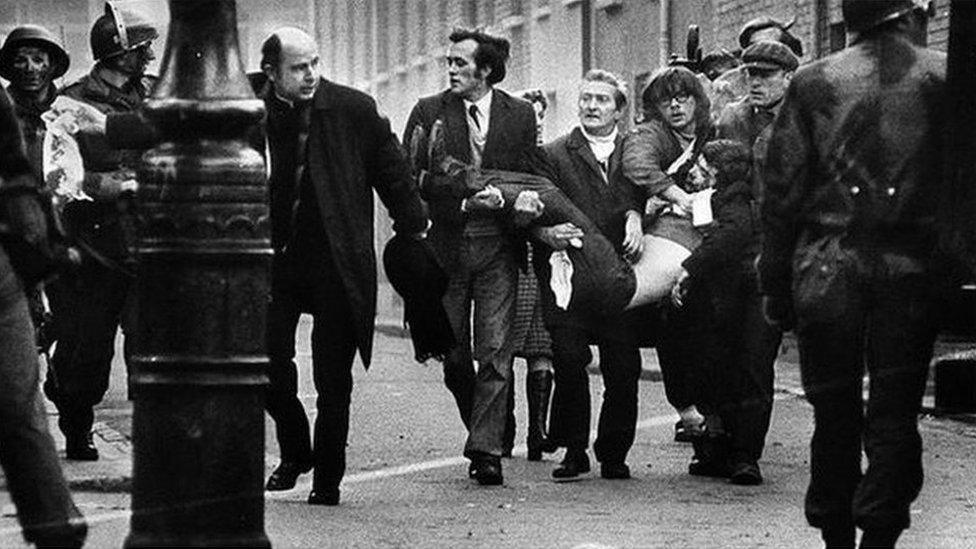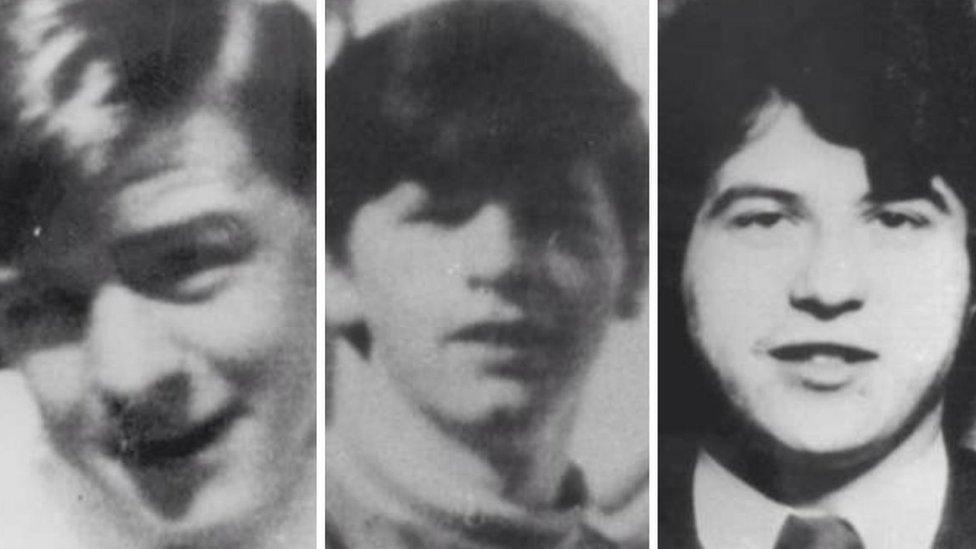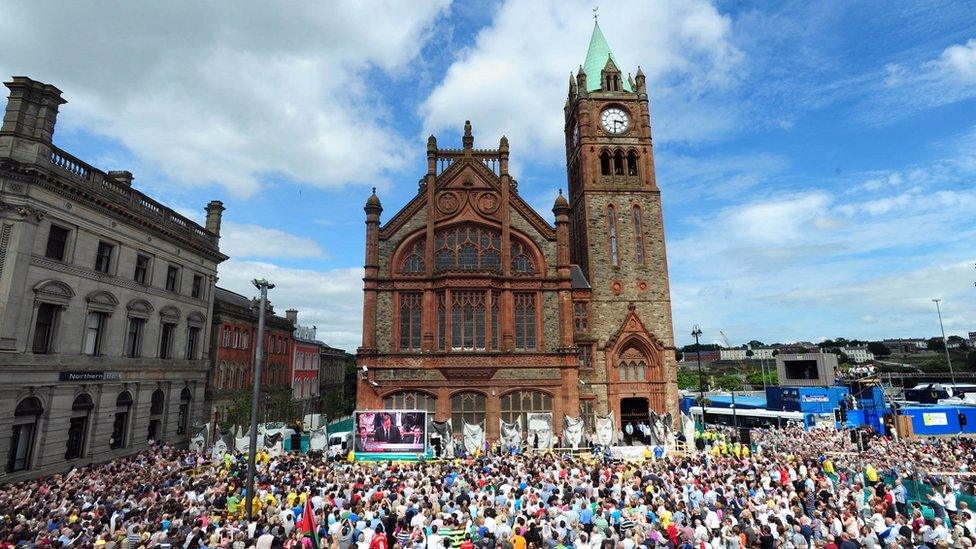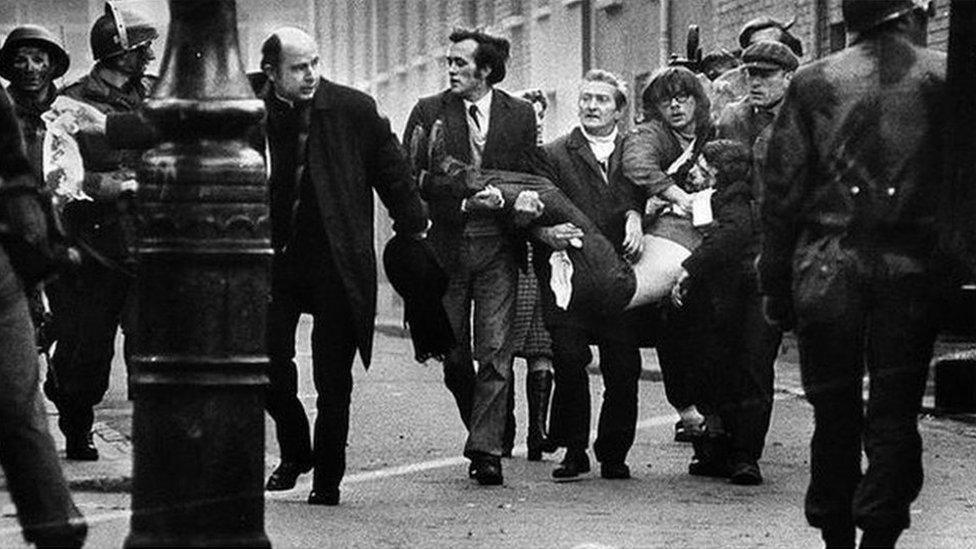Bloody Sunday: Former British soldier released on bail
- Published

Thirteen people were killed on Bloody Sunday in January 1972
A former British soldier, who was arrested by detectives investigating the events of Bloody Sunday in Londonderry, has been released on bail.
Thirteen people were killed when British paratroopers opened fire on a civil rights march through the city in January 1972.
The 66-year-old man is a former member of the Parachute Regiment.
He was the first person to be arrested as part of the Bloody Sunday investigation.
It is understood he was questioned over the deaths of William Nash, Michael McDaid and John Young.
He was arrested in County Antrim on Tuesday morning and interviewed at a police station in Belfast.

Michael McDaid, William Nash, John Young were killed on Bloody Sunday
The man was one of the soldiers who appeared before the Saville Inquiry and was referred to as soldier J.
The inquiry, led by Lord Saville, took 12 years to complete and exonerated those who died.
It concluded that soldiers fired the first shot and gave no warning before opening fire on the civilian marchers.
Controversial
The Saville Report, external also found that some of those killed or injured were clearly fleeing or going to help the injured and dying.

Thousands of people gathered in Derry in 2010 to watch Prime Minister David Cameron apologise for the Army's actions on Bloody Sunday
Bloody Sunday was one of the most controversial days in Northern Ireland's history.
In 2010, Prime Minister David Cameron apologised to the Bloody Sunday victims on behalf of the state, after a long-running public inquiry unequivocally blamed the Army for the civilian deaths.
The arrest of soldier J was made by the Police Service of Northern Ireland's Legacy Investigation Branch.
The specialist police team was set up to re-investigate unsolved murder cases, dating from the beginning of the Troubles in the late 1960s, up to 2004.
The Legacy Investigation Branch replaced the Historical Enquiries Team (HET), shortly after an inspection report criticised the HET for treating state killings with "less rigour" than others.
The branch began work in January this year, taking over the Bloody Sunday investigation along with other HET cases.
Clarification 9 April 2019: This article was amended to remove a reference to the death of John Johnston. This reflects the Bloody Sunday Inquiry's finding about Mr Johnston's death several months after he was wounded in Derry on 30 January 1972. The inquiry report states that his death was "not the result of any of the wounds he sustained on Bloody Sunday".
- Published10 November 2015
